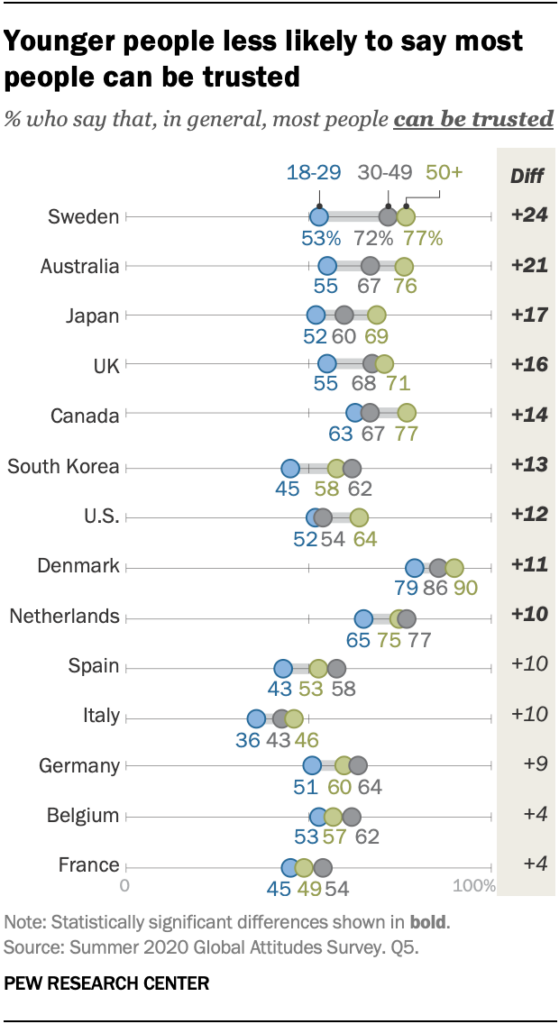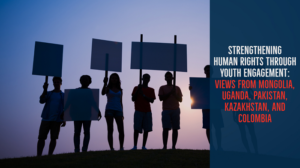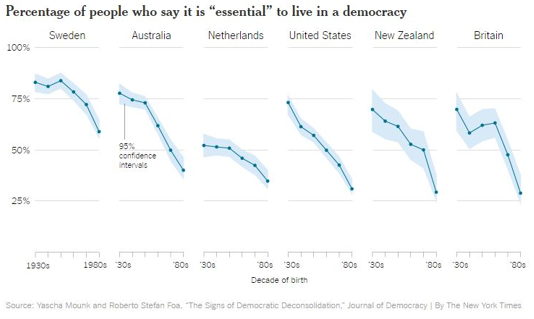 Research has shown that personal trust in the U.S. is linked to broader confidence in democratic institutions, greater communal participation and fewer reported negative feelings like anxiety and depression, the Pew Research Center notes. But…
Research has shown that personal trust in the U.S. is linked to broader confidence in democratic institutions, greater communal participation and fewer reported negative feelings like anxiety and depression, the Pew Research Center notes. But…
While a median of 62% of adults across 14 advanced economies generally believe most people can be trusted, there are significant differences in these views by age, education and other factors, according to a new analysis of findings from a recent Pew survey:
In most of the countries surveyed, younger people are significantly less likely than older people to say that others can be trusted. The divide is most pronounced in Sweden, where 53% of adults under 30 trust other people, compared with 77% of those ages 50 and up. There also are significant gaps between younger and older people in Australia, Japan, the UK, Canada, South Korea, the U.S., Denmark and the Netherlands.
 The survey adds substance to the argument that Gen Z (aka Zoomers) may have different policy impulses than older policymakers, as Carnegie analysts Samuel Barnett, Natalie Thompson, and Sandy Alkoutami contend:
The survey adds substance to the argument that Gen Z (aka Zoomers) may have different policy impulses than older policymakers, as Carnegie analysts Samuel Barnett, Natalie Thompson, and Sandy Alkoutami contend:
Eight in ten Zoomers say promoting democracy and human rights should be priorities for U.S. foreign policy. But America’s failings on issues of democracy and human rights at home give the United States little authority to proselytize abroad, especially as U.S. efforts toward these ends are undercut by arms sales to autocrats and ambivalence to abject human suffering.
Gen Z is America’s future and deserves its fair say at this foreign policy inflection point, they add, proposing at least four major changes:
- First, America must reframe its approach to foreign policy challenges. The idea that issues like climate change, China, or cyber threats can be conquered by sheer American might is misguided. Pursuing outright victory over these challenges will fail unless policymakers reframe their definition of success….
- Second, policymakers must reimagine America’s role in the world—scrapping the antiquated and paternalistic vision of the global policeman in favor of a more limited, modest posture. With the United States in desperate need of renewal at home, America cannot expect to remain the prevailing keeper of the peace or protector of the global commons…
- Third, the United States must diversify and strengthen its global partnerships to stay ahead of a rapidly evolving threat map. Today, the private sector enjoys enormous influence over issues of global importance, civil society organizes adeptly across borders, and individuals are super-empowered. …U.S. international engagement should move beyond multilateralism and embrace “multistakeholderism”—pursuing policy interests through broad coalitions of governments, private companies, NGOs, and civil society groups.
- Finally, policymakers must dramatically increase young Americans’ buy-in to the realm of foreign affairs—expanding mentorship and training opportunities, funding language studies and cultural exchanges, establishing scholarships and pathways for students committed to public service careers, and overhauling the federal hiring process.
From Plato to Cicero, and from Machiavelli to Rousseau, philosophers were obsessed with the question of how to instill political virtue in the youth, notes Yascha Mounk, who cited young citizens’ disenchantment with democracy as one of “The Signs of Deconsolidation” in the NED’s Journal of Democracy, January 2017.








